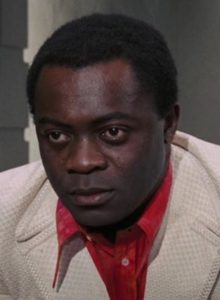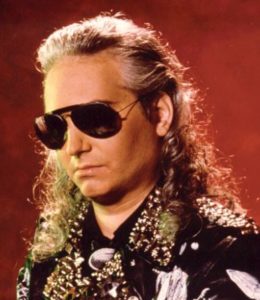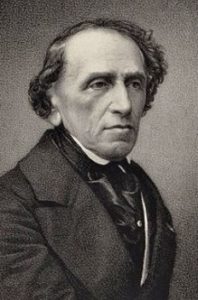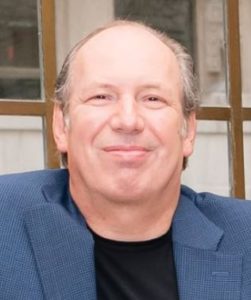In Memory of Two Great Artists
 Yaphet Frederick Samuel Kotto (1939-2021) was born in New York City. His mother came from a family with Caribbean roots, and converted to Judaism in order to marry his father, an observant Jewish immigrant from Cameroon. Kotto was raised religious, and would later describe how walking to the synagogue with a kippah on his head led to some “heavy fistfights” with anti-Semites. He went to acting school at 16, and three years later appeared in his first play, Othello. Kotto acted in a number of Broadway productions before moving to Hollywood. After a decade of small film roles, Kotto was cast as the Bond villain Mr. Big in Live and Let Die. In 1977, he played Idi Amin in Raid on Entebbe about the daring Israeli mission to save hostages in Uganda, for which he was nominated Outstanding Supporting Actor at the Emmy Awards. Kotto also starred in Alien, The Running Man (alongside Arnold Schwarzenegger), and Midnight Run (with Robert De Niro). All in all, he appeared in over 60 movies and over a dozen TV shows. He once said in an interview that had he not become an actor, he would have become a rabbi. Sadly, Kotto passed away earlier this year.
Yaphet Frederick Samuel Kotto (1939-2021) was born in New York City. His mother came from a family with Caribbean roots, and converted to Judaism in order to marry his father, an observant Jewish immigrant from Cameroon. Kotto was raised religious, and would later describe how walking to the synagogue with a kippah on his head led to some “heavy fistfights” with anti-Semites. He went to acting school at 16, and three years later appeared in his first play, Othello. Kotto acted in a number of Broadway productions before moving to Hollywood. After a decade of small film roles, Kotto was cast as the Bond villain Mr. Big in Live and Let Die. In 1977, he played Idi Amin in Raid on Entebbe about the daring Israeli mission to save hostages in Uganda, for which he was nominated Outstanding Supporting Actor at the Emmy Awards. Kotto also starred in Alien, The Running Man (alongside Arnold Schwarzenegger), and Midnight Run (with Robert De Niro). All in all, he appeared in over 60 movies and over a dozen TV shows. He once said in an interview that had he not become an actor, he would have become a rabbi. Sadly, Kotto passed away earlier this year.
 A fellow artist from New York who sadly passed away this year is James Richard Steinman (1947-2021). While studying at Amherst College, Steinman began writing music and lyrics for a number of school plays. In 1972, he wrote the music for the musical Rhinegold. The following year his first song was released commercially on Yvonne Elliman’s album. For much of the rest of the decade, he worked with the band Meat Loaf and wrote some of their greatest hits, along with one of the bestselling music albums of all time, Bat Out of Hell. In 1983, Steinman produced Bonnie Tyler’s album Faster Than the Speed of Night, and wrote its hit song “Total Eclipse of the Heart”. That year, it was the top song on the Billboard charts, followed by Air Supply’s “Making Love Out of Nothing at All”—which was also written by Steinman! All in all, Steinman wrote popular theme songs for television shows, soundtracks for movies, as well as music and lyrics for a number of stage productions. He wrote hit songs for Barry Manilow, Barbra Streisand, Celine Dion (“It’s All Coming Back to Me Now”), and even Hulk Hogan. He has been called “the greatest ever composer of symphonic rock” and the “father of the power ballad”.
A fellow artist from New York who sadly passed away this year is James Richard Steinman (1947-2021). While studying at Amherst College, Steinman began writing music and lyrics for a number of school plays. In 1972, he wrote the music for the musical Rhinegold. The following year his first song was released commercially on Yvonne Elliman’s album. For much of the rest of the decade, he worked with the band Meat Loaf and wrote some of their greatest hits, along with one of the bestselling music albums of all time, Bat Out of Hell. In 1983, Steinman produced Bonnie Tyler’s album Faster Than the Speed of Night, and wrote its hit song “Total Eclipse of the Heart”. That year, it was the top song on the Billboard charts, followed by Air Supply’s “Making Love Out of Nothing at All”—which was also written by Steinman! All in all, Steinman wrote popular theme songs for television shows, soundtracks for movies, as well as music and lyrics for a number of stage productions. He wrote hit songs for Barry Manilow, Barbra Streisand, Celine Dion (“It’s All Coming Back to Me Now”), and even Hulk Hogan. He has been called “the greatest ever composer of symphonic rock” and the “father of the power ballad”.
Words of the Week
If a word is worth one coin, silence is worth two.
– Talmud (Megillah 18a)

 Jacob Liebmann Beer (1791-1864) was born near Berlin, then in the Kingdom of Prussia, to a wealthy, observant Jewish family. His father was the president of Berlin’s Jewish community and ran a large synagogue in his home. His mother received the prestigious Order of Louise from the Prussian queen, and because she was an observant Jew, got a small statue instead of the traditional cross. The Beer children received the best secular education, as well as private tutors in Jewish studies. All three sons became famous: Wilhelm Beer as an astronomer, Michael Beer as writer, and Jacob Beer as a composer. When his beloved grandfather Meyer passed away, Jacob added the name to his own, changing it to Meyerbeer. He also vowed never to abandon the faith of his fathers, while many of his friends “converted” to Christianity to be accepted in society and to take on jobs otherwise barred to them. Meyerbeer was taught music from a young age by some of the best instructors of the time. He performed his first public concert at just age nine. Meyerbeer’s early work involved writing religious music for his father’s synagogue, and his first big production was a ballet-opera called The Fisherman and the Milkman, followed by the musical God and Nature, and the opera Jephtha’s Vow. He wrote beautiful pieces for the piano, clarinet, and full orchestras, and vacillated between composing and playing music himself (which he preferred). Having faced many difficulties in his youth, Meyerbeer founded the Musical Union to support up-and-coming composers. In 1813, he was appointed Court Composer for the Grand Duke of Hesse. Several years later, he felt he had lots more to learn and moved to Italy. There he wrote some of his most renowned operas. By 1824, he had become world-famous, and his 1831 grand opera, Robert le diable, made him the equivalent of a modern-day superstar. The following year, he received the Legion of Honour, the highest award in France. In 1841, he was described as the “German Messiah” who would save the Paris Opera from its death, and shortly after also became director of music for the Prussian royal court. Not surprisingly, his success and wealth drew the ire of his colleagues, and Meyerbeer faced terrible criticism and anti-Semitism (especially from Richard Wagner, once his pupil). Meyerbeer remained graceful nonetheless, and never responded to the attacks on him. He continued to compose popular works until his last day, and has been credited with being “the most frequently performed opera composer” of the 19th century. He inspired the works of later greats like Dvořák, Liszt, and Tchaikovsky. He was also a generous philanthropist, a devoted husband and father to five children, and never broke his vow to die an observant Jew. Meyerbeer remains one of the greatest musicians of all time.
Jacob Liebmann Beer (1791-1864) was born near Berlin, then in the Kingdom of Prussia, to a wealthy, observant Jewish family. His father was the president of Berlin’s Jewish community and ran a large synagogue in his home. His mother received the prestigious Order of Louise from the Prussian queen, and because she was an observant Jew, got a small statue instead of the traditional cross. The Beer children received the best secular education, as well as private tutors in Jewish studies. All three sons became famous: Wilhelm Beer as an astronomer, Michael Beer as writer, and Jacob Beer as a composer. When his beloved grandfather Meyer passed away, Jacob added the name to his own, changing it to Meyerbeer. He also vowed never to abandon the faith of his fathers, while many of his friends “converted” to Christianity to be accepted in society and to take on jobs otherwise barred to them. Meyerbeer was taught music from a young age by some of the best instructors of the time. He performed his first public concert at just age nine. Meyerbeer’s early work involved writing religious music for his father’s synagogue, and his first big production was a ballet-opera called The Fisherman and the Milkman, followed by the musical God and Nature, and the opera Jephtha’s Vow. He wrote beautiful pieces for the piano, clarinet, and full orchestras, and vacillated between composing and playing music himself (which he preferred). Having faced many difficulties in his youth, Meyerbeer founded the Musical Union to support up-and-coming composers. In 1813, he was appointed Court Composer for the Grand Duke of Hesse. Several years later, he felt he had lots more to learn and moved to Italy. There he wrote some of his most renowned operas. By 1824, he had become world-famous, and his 1831 grand opera, Robert le diable, made him the equivalent of a modern-day superstar. The following year, he received the Legion of Honour, the highest award in France. In 1841, he was described as the “German Messiah” who would save the Paris Opera from its death, and shortly after also became director of music for the Prussian royal court. Not surprisingly, his success and wealth drew the ire of his colleagues, and Meyerbeer faced terrible criticism and anti-Semitism (especially from Richard Wagner, once his pupil). Meyerbeer remained graceful nonetheless, and never responded to the attacks on him. He continued to compose popular works until his last day, and has been credited with being “the most frequently performed opera composer” of the 19th century. He inspired the works of later greats like Dvořák, Liszt, and Tchaikovsky. He was also a generous philanthropist, a devoted husband and father to five children, and never broke his vow to die an observant Jew. Meyerbeer remains one of the greatest musicians of all time.